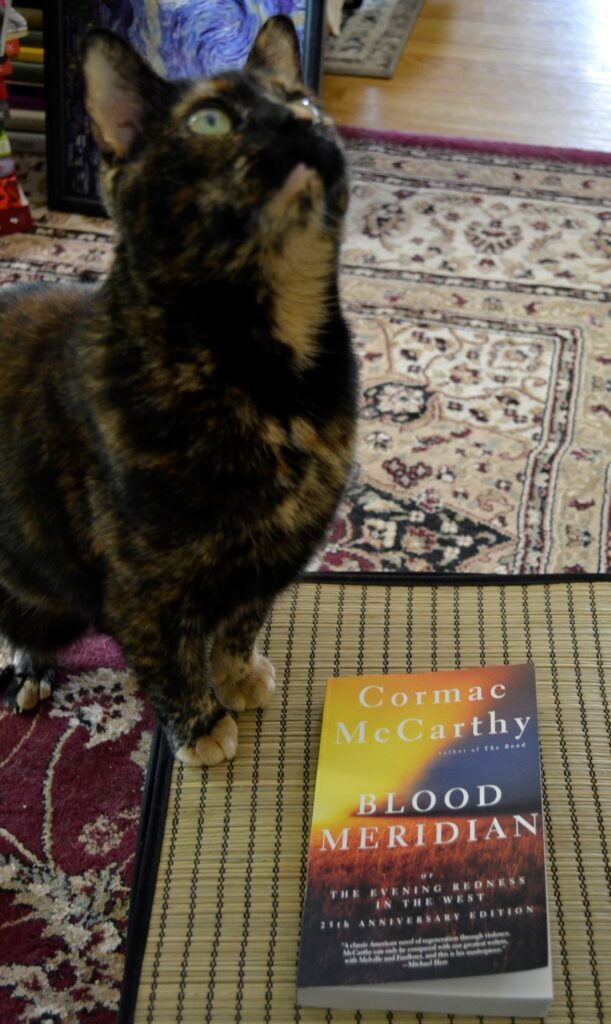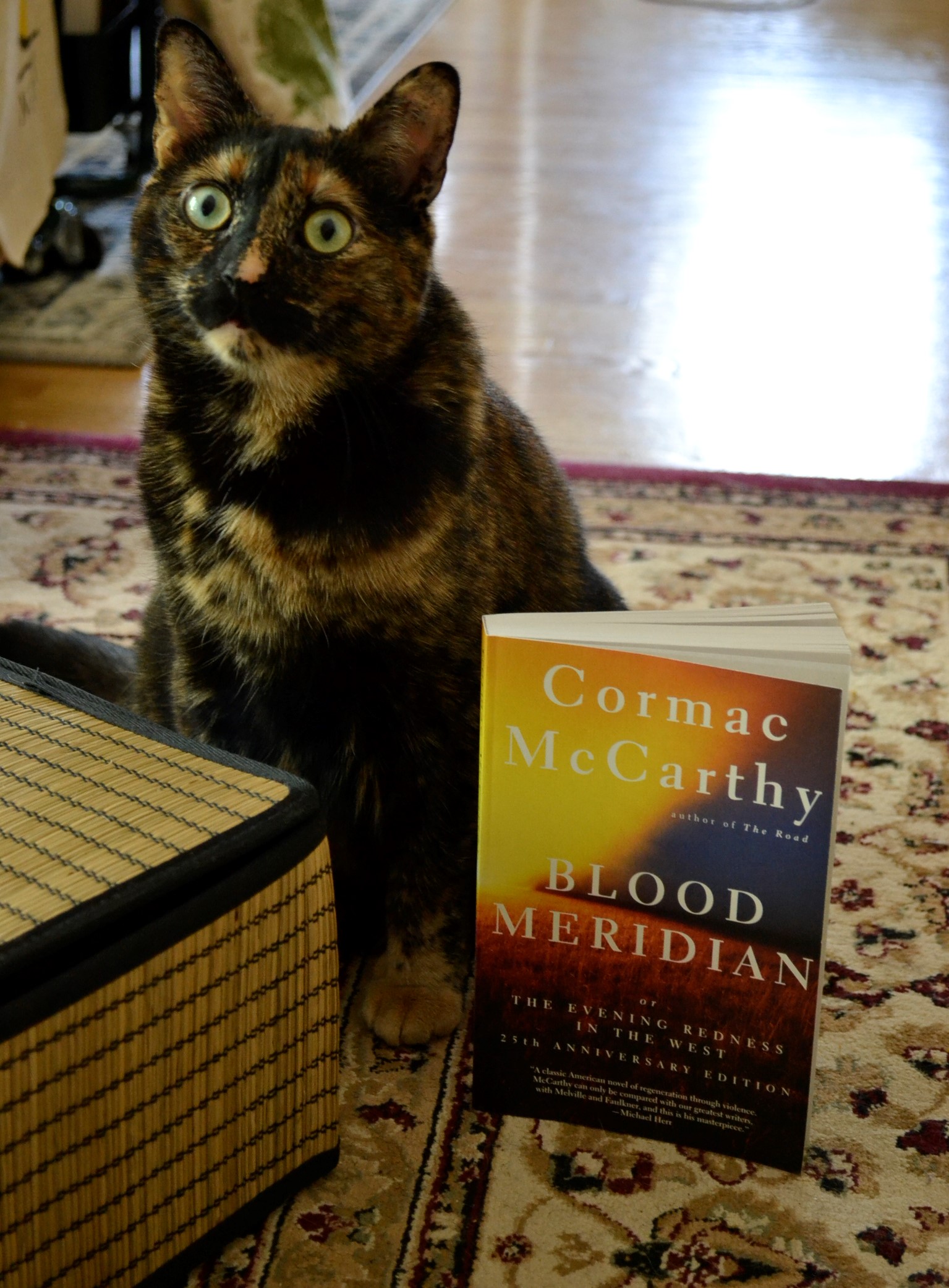Adventures in Theatre
So my lovely spouse and I love our little theatre town and the yearly huge theatre festival that happens here every April through October. But, because I love that festival, I’ve been hankering to expand out into other theatre experiences. For that reason, I am planning a September theme on this blog of plays and playwrights. And I’m reading more contemporary plays with tentative plans to go to the city to see some on stage.
But tonight? Tonight we go out to the local history museum to see an independent theatre experience in a tent — potentially risking getting eating alive by mosquitos. I’m always a bit nervous when I branch out into a new area of the arts or literature. It takes me a while to find my confidence and settle my feet into the necessary research. On the other hand my nervousness is usually matched by excitement, because literature is always exciting and I also love learning more about new structures, forms, and performances.
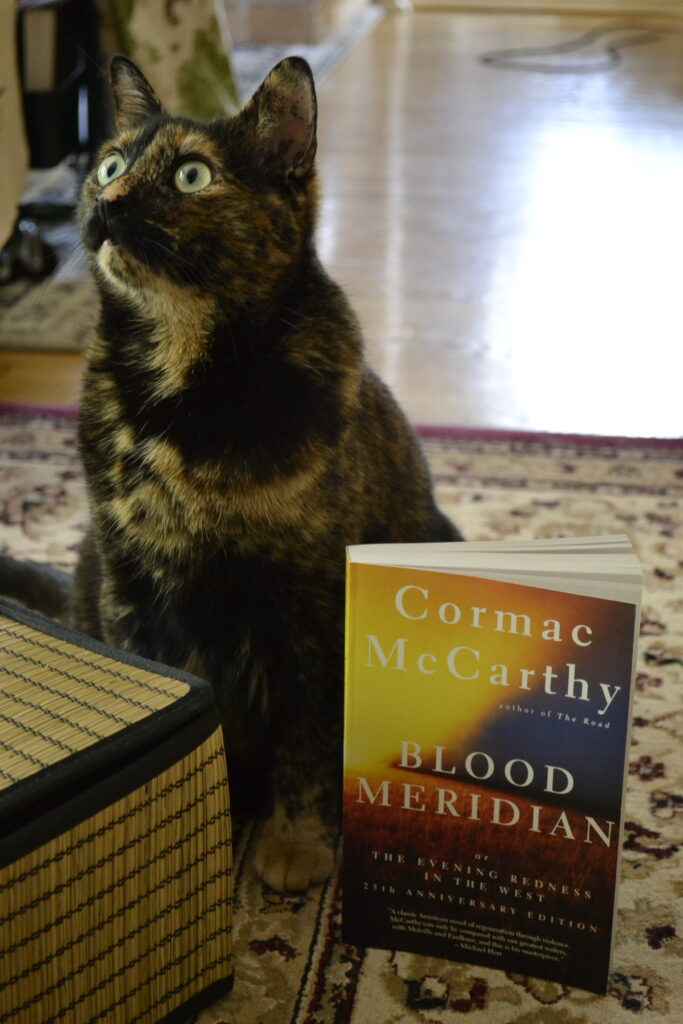
A Bit of a Departure
I’m going to kick of this review with a bit of a disclaimer. I don’t read westerns and I watch relatively few of them because it is the most hated genre of my lovely spouse. I am not the intended audience of Blood Meridian, nor am I someone versed in the conventions of the style and structure of books related to it. Though, I did decide to read it anyway because Blood Meridian is an anti-western and hailed as Cormac McCarthy’s masterpiece if not a masterpiece of 20th century literature in general.
The narrative follows the Kid, who starts the novel as a fourteen-year-old runaway, and who wanders across the country falling in with armies, gangs, and outlaws. However, though the Kid is the main character, I would argue that the true star of the book is the landscape and the true focus is the violence and brutality of this moment in time in the American West. Not just about general lawlessness, McCarthy paints a portrait of colonialism, acts of violence both random and for profit, and the horrific extent of human cruelty, complacency, and ambivalence.
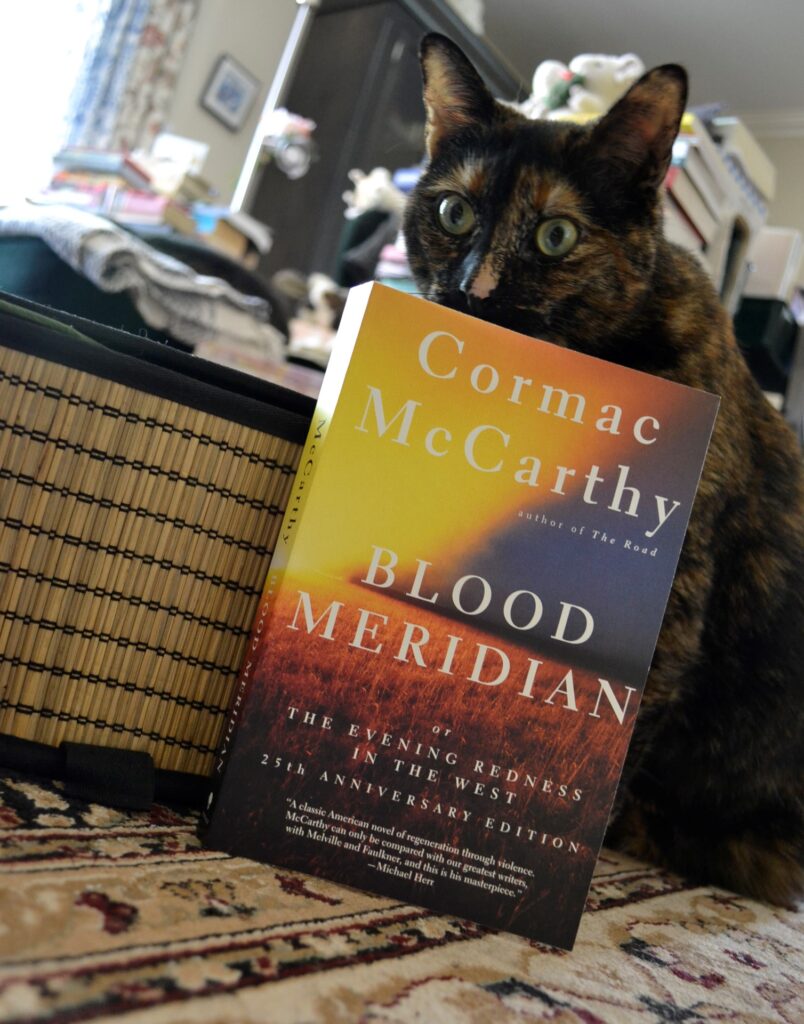
I’ll leave it up for you to decide whether the novel lives up to its extensive praise. For my part, despite the book being outside my literary comfort zone, I did see what made it so ground-breaking and so influential. It was worth the read — as long as the graphic violence (including sexual violence) is something that you can tolerate as a reader.
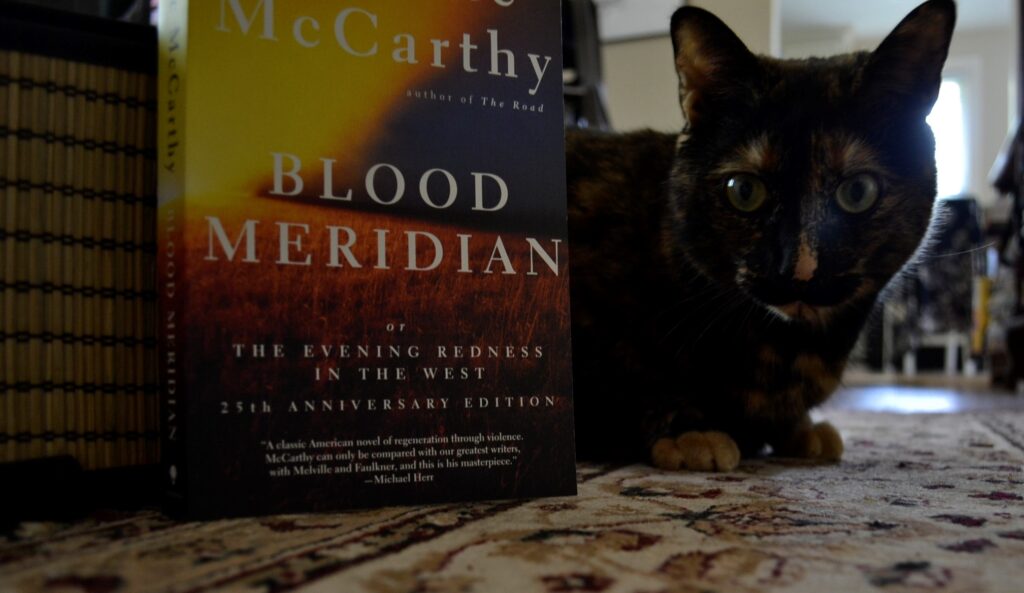
Symbolism, Meaning, and Landscape
Blood Meridian is definitely a book that makes full use of symbolism, metaphor, and imagery. The landscape, the characters…there are symbols large and small here that could have you reading this book over and over again yet still finding new tidbits to explore. I will say that because there are so many symbols, there are moments when I found there was a heavy-handedness that was off-putting or a foreshadowing that was just too obvious. The fortune-telling tarot card scene was a bit much for me and is an example of the intersection of both these issues.
I found the landscape by far and away the most effective use of symbolism, as McCarthy describes it in such a painterly way and ties it in so beautifully with the plot and the psychological atmosphere of the novel. In my opinion, it was by far more effective than the use of biblical imagery, but I do know other reviewers have said the opposite.
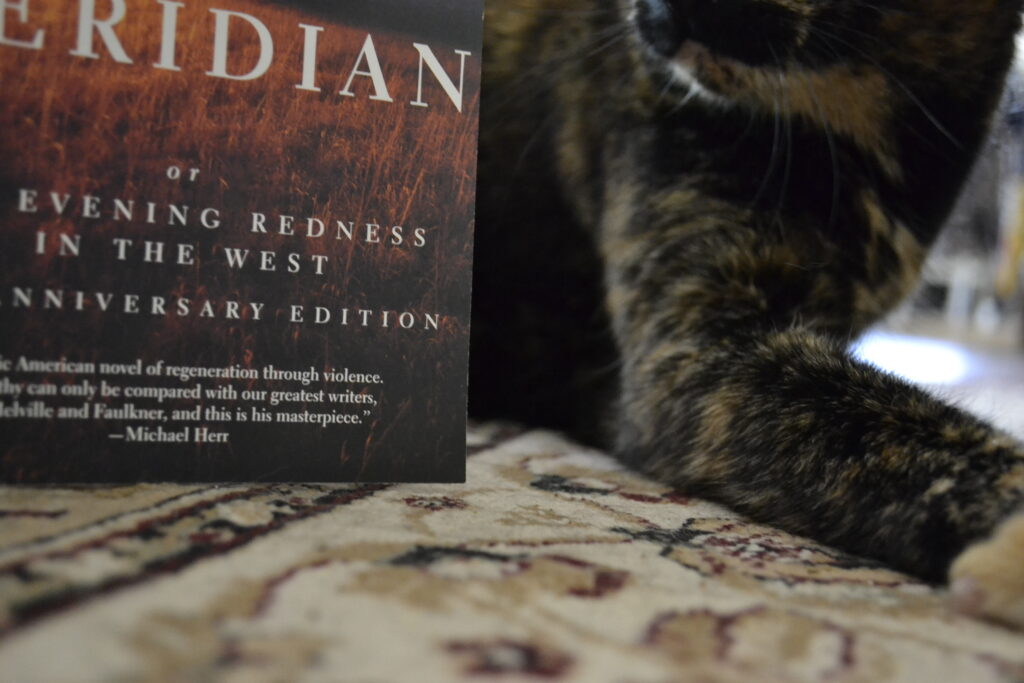
Modern Considerations
Another disclaimer. I am aware that Cormac McCarthy did a lot of research before writing Blood Meridian, and it shows. He was using sources that were acceptable authorities at the time he was writing, and he was using language that was acceptable at the time he was writing.
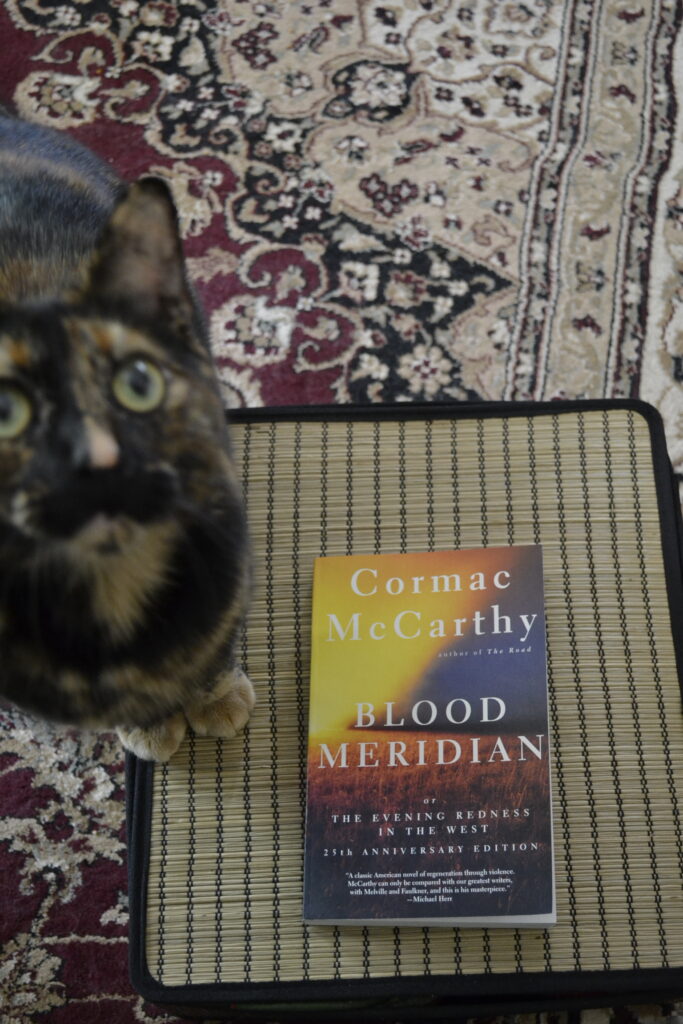
That being said, times have changed, and some of those sources have been lately heavily criticized if not completely disproven. As a modern reader, this becomes immediate and cringingly obvious at times, especially when McCarthy is detailing Indigenous Peoples and encounters with the Indigenous. The novel is a bit limited by perspective and by the limits of who recorded the history of the American West and why.
Blood Meridian is one of those books where its important to examine the historical context of when it was written as well as when it was set. Ask questions about the narrative and think about it critically without taking it as a factual retelling of history. It’s a novel, not a history book, and it serves a literary purpose.
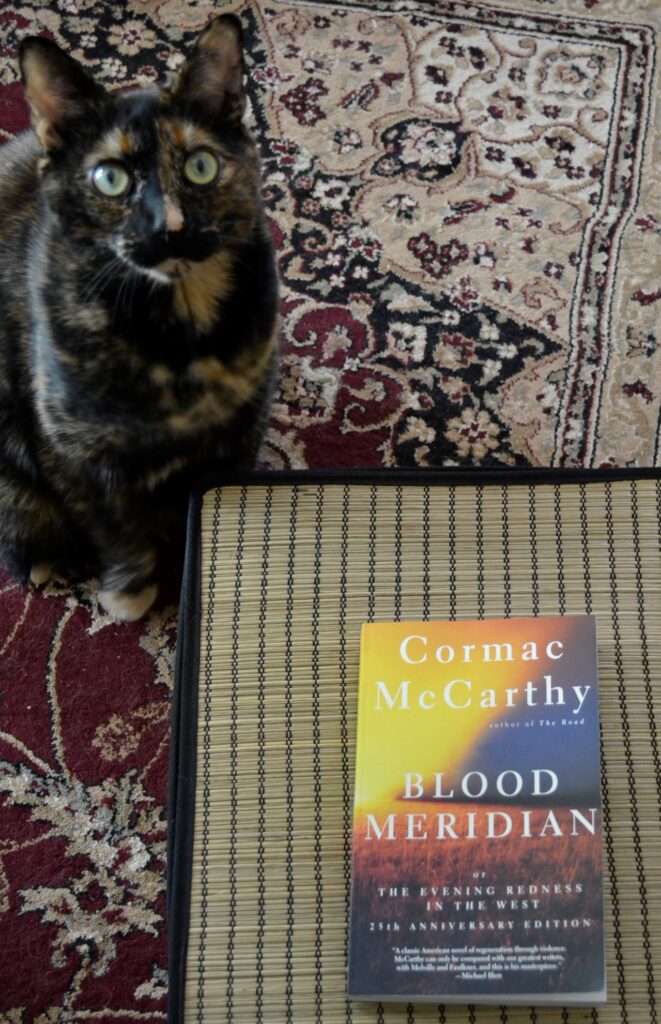
The Senior Years
Wesker has been doing extremely well on her new diet of kidney food. She’s gained weight and her last round of bloodwork actually showed a bit of an improvement — which is beyond what even the vet hoped for. But then last night, we found some scabs in her fur and that means an appointment for the vet and maybe a food change.
I know it’s not anything serious, but anything to do with Wesker’s health is a bit scary after all of the testing we went through in the winter. I want to make her senior years comfortable, happy, and to keep her as healthy as I can for as long as I can. I’m always worried that when we get busy or stressed that she’s the one that gets the short end of the stick. Not optimal playtime. Not optimal calm. I need to work on my stress level, because I know that it impacts her.
And I know I should know this by now, but its still hard to realize that stress doesn’t just affect me. It affects my lovely spouse and our little fuzzy family. It’s important to take care for everyone’s sake.
